Friday, May 31, 2019
For Immediate Release
Educators Enhance Their STEM Teaching Toolkits
at Wade Institute for Science Education Seminars
Worcester, MA – During the Wade Institute for Science Education’s 2019 Professional Development Seminar Series, educators from across Massachusetts gathered at Clark University for one-day seminars that engaged them in hands-on, minds-on professional learning. Attendees collected resources to use when planning programs and exhibits at their organizations and shared ideas for engaging students in science using inquiry-based methodology and real-world data.
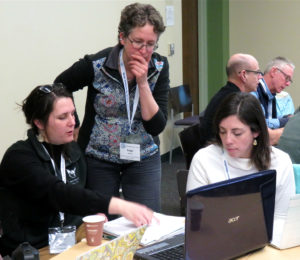
Thursday, January 31st: Making Connections with Science
During the first seminar, informal educators and teachers learned more about climate change and discovered ways to document natural phenomena through journaling. Participants considered current and projected impacts of climate change on the environment, society, and infrastructure by examining models of global climate change data with presenter Bob Chen, Professor at UMass Boston’s School for the Environment, and Director of the Center for Coastal Environmental Sensing Network. Educators also set up nature journals with guidance from presenter Clare Walker Leslie, author of 12 books on nature journaling. While sketching their natural surroundings, they discussed how journaling can be beneficial in documenting phenology (cyclical or seasonal natural phenomena). Through this seminar, educators accessed ways to bring real-life climate data to young learners, and they refined their data collection techniques.
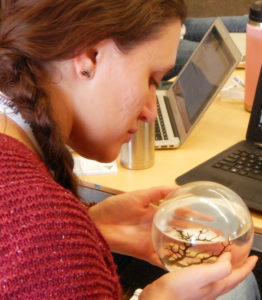
Thursday, February 28th: Learning From Our Cities
In the second seminar of the series, educators explored urban ecology and biodiversity. Participants looked at the effects of urbanization on wildlife habitats with presenter Paige Warren, Professor in the Department of Environmental Conservation at UMass Amherst. They then applied their knowledge of urban wildlife by designing their own biodiversity cards with presenter Marie Studer, Director of Encyclopedia of Life and Learning and Education Group at Harvard University’s Museum of Comparative Zoology. Using online tools and apps, like eBird and iNaturalist, educators tested data collection methods that can be used to actively engage students in citizen science and place-based learning.
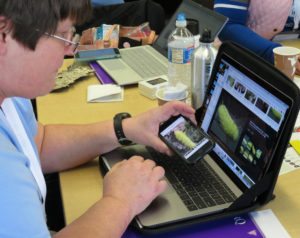
Thursday, March 21st: Science Story Tellers
Educators drew connections between science and the humanities during the third seminar in the series. With presenter Chad Montrie, Professor at the College of Fine Arts, Humanities and Social Sciences at UMass Lowell, participants examined the timeline of events that led to the origins of American environmentalism in New England. They discussed how people living in cities such as Lowell sparked changes in local policies and prompted cultural shifts, as well as the role of the Industrial Revolution in citizens’ decision-making about their natural resources. Afternoon presenters Kristin Boudreau, Humanities & Arts Professor and Department Head, and David DiBiasio, Associate Professor of Chemical Engineering at Worcester Polytechnic Institute, shared with educators more about local history through a role playing simulation game. Through the simulation game, participants took on the personalities of 19th century Worcester residents who were concerned with the area’s polluted waterways. Participants of this seminar gained insights on the importance of project-based learning for teaching science using interdisciplinary methods, and they learned how to develop a simulation relevant to their local community.
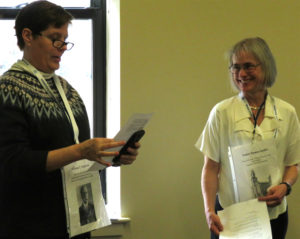
Thursday, April 25th: Science On the Brain
The series concluded with a special full-day seminar that focused on research about how our brains work and how to apply this research in program development. Educators explored cognition, neuroscience, and educational psychology with guest presenters Robert Payo and Tim Blesse, from the Denver Museum of Nature and Science. Participants examined their own learning behaviors while considering the most effective methods of teaching for multiple learning styles. Through hands-on, minds-on activities, educators gained a deeper understanding of attention systems, emotional intelligence, and memory. Participants left with ideas to modify their curriculum to better facilitate learning for students of all ages.
“When you learning something, your brain physically changes. We call that firing-to-wiring.” – Robert
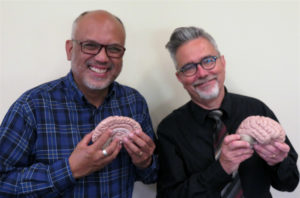
The Wade Institute’s Professional Development Seminar Series is designed for staff and volunteers of informal education organizations. These one-day professional learning opportunities provide educators with resources to strengthen their science, technology, and engineering content knowledge, as well as skills and tools to enrich their organizations’ school programs, exhibits, and public programs. By participating in seminars, educators connect with STEM content, inquiry-based resources, and like-minded colleagues.
###
The Wade Institute for Science Education specializes in providing inquiry-based, hands-on, minds-on, science, technology and engineering professional development for K-12 teachers and informal educators. For more information, visit www.wadeinstitutema.org or call 617-328-1515.
